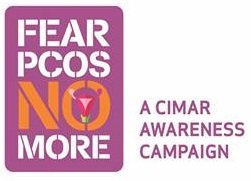Polycystic Ovarian Syndrome is a familiar name among women of reproductive age. It is a hard one to tame and has an overall negative effect on body and mind. With symptoms like increased sugar cravings, fatigue and mood swings, it can make you feel like not having control over your life.
Don’t lose hope yet. With some changes in the routine and consultation with a specialist, it is possible to curb PCOS. The more effort you put in to strengthening the overall health and improve everyday routine, the better chance you have at beating PCOS.
Burn Extra Calories
A good workout routine can help you with not only looking good but improving your health. One of the most troubling symptoms of PCOS is unhealthy body image which can affect your confidence and self-esteem. A cardio routine can increase the insulin sensitivity of body, which will control the recurrent sugar cravings. This will have a positive impact on losing those extra pounds, especially belly fat. Brisk walking, jogging and cycling are some activities to start with. These will increase your heart rate which will lead to energy consumption and burn the extra calories.
Along with regular cardio, adding some strength training exercises will boost the metabolic rate. Exercises such as squats and push-ups will help with building a healthy body composition by decreasing fat tissues and promoting muscle strength.
Two Is Better Than One
A combination of cardio exercises and strength training is the most benefitting option for women suffering from PCOS. While cardio workout bring down future risk of cardiovascular diseases and diabetes, strength training contributes to a toned body and appropriate BMI.
If you do not enjoy working out in the gym every day, opt for activities such as zumba, pilates, yoga, aerobics and swimming which are good combinations of cardio and strength training exercises. But, if you overwhelm the body with excessive exercises, it can exacerbate the condition and cause fatigue, deregulated hormones, and pain.
If you experience chronic muscle soreness, lack of focus and jitteriness, consider it as the first warning from your body. Frequent occurrences of communicable illnesses such as cold or sudden end to the progress you were making are also signs of inappropriate workout routine.
The Right Diet
Making the right choice regarding diet is essential for one fighting PCOS. Junk foods and sugary delicacies are not your best friends at this point. Artificial sweeteners, food colours and refined sugar must be avoided. Alcohol and nicotine should be eliminated from your life as it can slow down recovery.
Eating the right food will provide your body with all the necessary vitamins and minerals. Include plenty of vegetables and fruits in every meal you consume. Filling half of your plate with vegetables will help with weight loss as well as recovery. Green leafy veggies such as spinach, broccoli, lettuce and cabbage are a good start to healthy diet. It is important not to ignore proteins such as lean meats (chicken and fish), nuts, dairy products, beans and lentils as they are essential for repairing body tissue.
Soothe your mind
Working out on a daily basis will bring down the level of adrenaline and cortisol in your body. As these hormones are associated with stress, their low level will promote the production of endorphins. And these are the neurochemicals that makes you happy by inducing a sense of well-being. This ‘feeling good’ is a valuable experience for PCOS patient who is going through several phases of anxiety, depression, stress and mood swings.
For some people, being physically active will not be enough to calm their mind. Breathing exercises are one method that is easy to do anywhere and anytime. Every time you feel anxious and stressed, take deep breaths and inhale as much as fresh air possible into your lungs. Be sure not to swallow shallow breaths from the upper chest but to take deep breaths from the abdomen. More oxygen will help you feel less short of breath and tensed.
Pamper your body
Your mental state is often connected to the wellness of your body. When you pamper your body, it will resonate with your mood. A short session of self-massage with a natural oil of your choice will help you decompress. Regular practice of relaxation techniques will be helpful with mood swings and anxiety. You can start with applying gentle strokes on the joints, tapping on body parts with finger tips or cupped palms. Putting fingertip pressure on and relieving it in short intervals will follow with a sense of relaxation. You can continue with kneading across muscles and gliding strokes. These techniques can be applied to any part of the body including neck and head.
Other methods such as mindfulness meditation and body scan meditation are also helpful but requires more time and professional help. Reaching out for the help and support you need are the most important part of all. Sometime, talking to a friend is the most effective therapy.
If your progress hits a plateau, do not lose heart and quit. Even if you have skipped these practices for weeks, pick yourself up and start again. Every effort you make will reflect on your physical and mental health.
About the Author
Dr. Parasuram Gopinath is the Senior Consultant & Scientific Director at CIMAR Fertility Center with branches in several parts of Kerala. Tamil Nadu & Dubai. After Dr Parasuram completed his post-graduation in Obstetrics and Gynecology, his work has been mainly focused on infertility and embryology. He had undergone further training in Advanced Reproductive Techniques like Oocyte Cryopreservation, IMSI, IVM etc. from several centers in Singapore, Germany & Canada. He has personally done over 3000 ICSI procedures and was instrumental in introducing the technique of IMSI in South India. He is an Invited speaker at Several National conferences on Infertility and do also have several publications to his credit.

Dr. Parasuram Gopinath, MBBS. MS(OBG)

